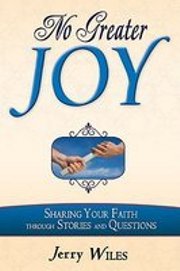
International (MNN) — In much of the Western world, literacy is expected. The Bible is taught with the understanding that those who are studying it are doing so by reading. People from this sort of a culture may be surprised to find out, then, that most of the world does not learn this way.
"70 percent of the world's population would be considered oral learners by necessity or by preference," says Jerry Wiles with Living Water International.
This fact can of course cause some problems in the mission world when literacy-driven people try to reach oral learners." While the highly literate can also learn from exposition and analysis, people from oral cultures cannot," confirms audio Scripture outreach Faith Comes By Hearing. "This understanding is changing the way we think about literacy, shifting to an emphasis on the culture of orality rather than on the inability to read and write."
That fact alone means: the way missions works has to change.
"If we're going to take the Gospel to the ends of the earth, make disciples of all nations, [and] if the majority of the people can't read or use literate means, then we need to figure out how they learn, [understand] their world view, and make it biblical, understandable and reproducible," says Wiles. He adds, "The fastest growing movement in evangelism is in orality. The most rapidly reproducing church-planting movements today are in oral cultures."
Wiles is the president of Living Water. So, what do orality and well-drilling have to do with one another? "The foundation of what we're about is the spiritual life and the outreach, and our vision statement is to reach the world with water and the Word," says Wiles. He goes on to say that many of the cultures in need of clean water also happen to be some of the neediest and least-evangelized. Not surprisingly, many of them cannot read or write. Story becomes essential in ministry.
With all these things in mind, Wiles has written a book called No Greater Joy. The book reportedly helps believers do the following: "Recognize opportunities for sharing the Gospel; ask questions to start spiritual conversations; know what not to say or ask; eliminate fears and other hurdles; and demonstrate God's power and love."
Wiles encourages all believers to learn more about telling the Gospel story orally and to get a better handle on how oral learners learn. Even some Westerners simply prefer to learn from hearing rather than reading. At any rate, "Very respected missiologists and mission leaders now are really on-board and embrace this as a very significant innovation in missions that's going to have tremendous impact."
No Greater Joy is one resource to help you get up to speed with the changing world of missions. The book even includes discussion questions. You can buy a copy at Barnes&Noble, Family Christian Stores or Amazon.com today.
Pray that this new approach will result in the transformation of many lives.